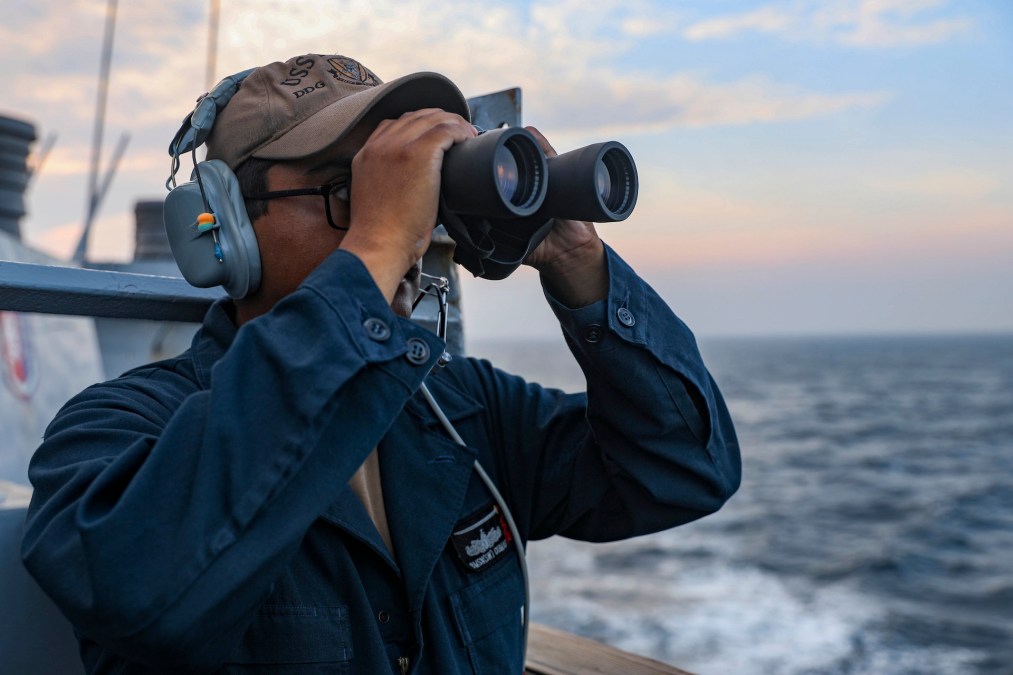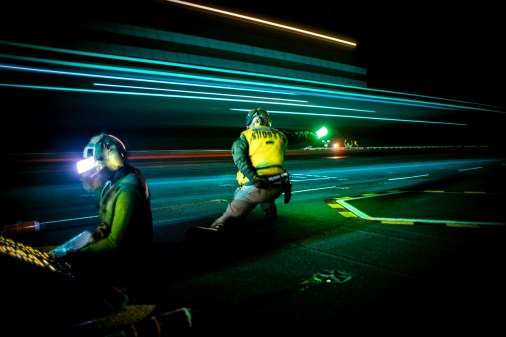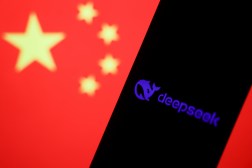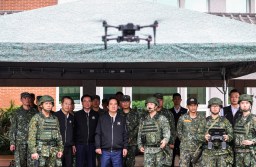Pacific Fleet chief sees military operating at ‘dawn of the information revolution’

SAN DIEGO, Calif. — As the Pentagon prepares for a potential conflict with China, it finds itself in the midst of a revolution with vast implications for warfighters, according to the commander of U.S. Pacific Fleet.
“We are in the middle of another epochal change. And that is the dawn — and I do mean the dawn — of the information revolution,” Adm. Samuel Paparo said Wednesay at the annual WEST conference. “Who competes best in this, who adapts better, who is better able to combine data, computing power, AI — and who could win the first battle, likely in space, cyber and the information domain — shall prevail.”
Paparo has been nominated to serve as the next commander of Indo-Pacific Command, where he would lead all joint forces in the region and play a pivotal role in any military conflict against the People’s Liberation Army or other U.S. adversaries.
The advent of modern technology — along with the increasing reliance on systems that were not build with security in mind — has allowed forces to be able to project power from far away, inject confusion into the information space, and infect systems that units rely on, to disable or confuse them.
Adversaries have sought to exploit the information environment through disinformation, misinformation, information ops and other activities as a means of undermining U.S. and allied interests without having to confront them in direct military conflict.
The United States in response, has sought to bolster its own approach in the information environment with the expectation that a future conflict will prominently feature information warfare.
“Really, the future fight is going to be an information fight. Warfighters who can sense, make sense and act on information are going to win. And that’s really what we need to focus on from an information warfare perspective,” Elizabeth Nashold, deputy commander of Naval Information Forces, said at the conference. “IW underpins every single warfare mission in the Navy today. You name that mission and there’s an IW component to it … IW is foundational to success, from peacetime to competition to crisis and conflict. It’s integral to fleet and joint operations and it plays a role in every warfare domain every day. And it’s its own warfighting domain as well.”
She noted that information warfare capabilities are in high demand now, more than ever, and will bolster other capabilities.
Paparo — who during his confirmation process for Indo-Pacom earlier this month, told senators he plans to use information tools to beat back a growing threat from China — noted that despite the emergence of the new information revolution, the fundamentals of war remain unchanged.
“These effects will not be in and of itself, replacing of the principles of war or the seven joint functions, but in fact, augment and enrich our ability to navigate and to perform each of them,” he said. “War, its nature has not changed. It is inherently human … It will and ever will be a contest of will, a human endeavor to affect human behavior.”
He explained that this information age demands important discussions on certain principles such as relying more on machines than putting people in harm’s way.
“Don’t risk a human being in a dangerous environment … when a machine can do it better, faster and cheaper … Allow machines to do tasks and calculations that machines do better and overlay human judgment when it’s required,” he said. “Never abdicate decisions on human life to machines.”






